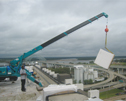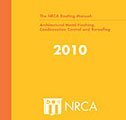The historic battle regarding health care reform legislation dominated the congressional agenda during 2009, putting many other issues on hold. Although it appears the health care debate will continue, NRCA expects Congress to take up several other initiatives of interest to the roofing industry this year.
Primary initiatives
Democratic leaders have indicated they will attempt to pass a "job creation" bill early this year. With the U.S. unemployment rate surpassing 10 percent at press time, many Democrats believe they must take action to spur economic growth and create jobs to avoid losses in the midterm elections. The legislation may include new or expanded tax incentives designed to boost business investment. However, passing legislation aimed at accelerating job creation will be difficult without further adding to the federal deficit.
This year, Congress also may act on the Employee Free Choice Act (EFCA), or "card check" legislation, which effectively would eliminate secret-ballot elections for union organizing by allowing a union to be formed when a majority of workers sign authorization cards. The bill also would mandate binding interest arbitration if an employer and union cannot agree on a contract's terms, resulting in a government-appointed arbitrator dictating the contract's terms without recourse.
NRCA opposes EFCA because a majority of its members believe secret-ballot elections should be preserved and binding arbitration would diminish employers' control of business operations.
To date, EFCA supporters have not been able to garner the 60 votes needed for the bill to pass the Senate and have been working to develop a compromise version that could achieve the 60-vote threshold.
The Senate also may consider climate change legislation this year. NRCA President Rob McNamara, president of F.J.A. Christiansen Roofing Co. Inc., Milwaukee, a Tecta America company, testified before the House in 2009 regarding how energy-efficient roofing materials affect climate change, as well as NRCA's concerns about the potential effects of aggressive carbon-reduction efforts.
In the summer of 2009, the House narrowly passed a climate change bill containing a controversial "cap-and-trade" program designed to dramatically reduce carbon emissions. Although the House bill is viewed as a nonstarter in the Senate, senators from both parties have been working to develop a climate change bill that can gain bipartisan support.
Other issues
Democratic leaders appear intent on moving forward with the so-called Healthy Families Act (HFA), which would require most employers to provide 56 hours of paid sick leave to all full-time and some part-time employees. NRCA opposes HFA because it would limit employers' ability to design benefits to meet their employees' needs.
Another initiative Congress may address is the Protecting America's Workers Act, which would give the Occupational Safety and Health Administration new and expanded tools to enforce workplace safety laws, including increased penalties for employers and expanded whistleblower protections.
Finally, Obama and several key Democrats have indicated they hope to pass comprehensive immigration reform legislation during 2010. However, most observers believe the prospects for passing such legislation are dismal.
Staying engaged
How many of these issues Congress takes up will depend on what happens regarding health care reform, the state of the economy and the politics associated with the upcoming midterm elections in November. NRCA will remain engaged with members of Congress regarding these issues as they develop.
Duane L. Musser is NRCA's vice president of government relations.



